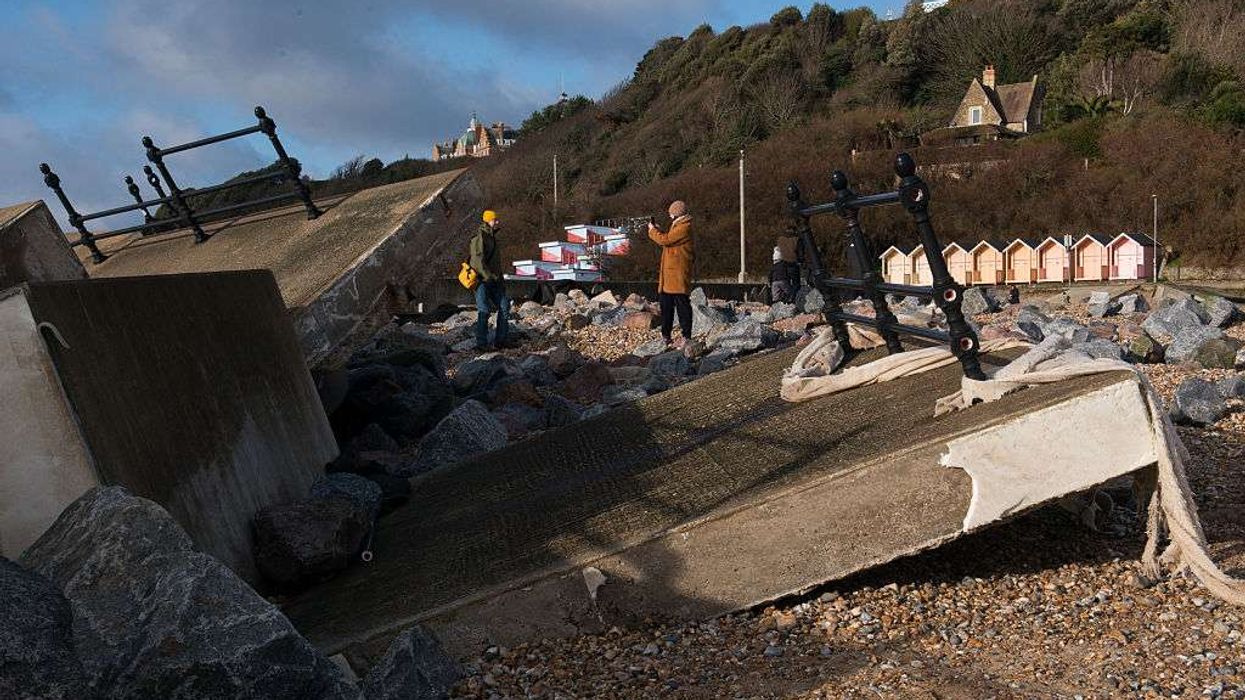RISHI SUNAK started off his maiden Budget statement on Wednesday (11) with focus on a £30-billion package to tackle the coronavirus outbreak, assuring the nation that “we will get through this—together”.
The chancellor said the NHS will get “whatever extra resources” it needed to cope with COVID-19, and pledged financial assistance of over “£2bn for up to 2 million businesses”.
He announced an emergency fund of £5 billion for the NHS, noting that 50,000 nurses, 40 hospitals and 50 million GP appointments will be added.
“I want to get straight to the issue most on everyone’s mind: coronavirus COVID19,” he said. “I know how worried people are. Worried about their health, the health of their loved ones, their jobs, their income, their businesses, their financial security.
“And I know they get even more worried when they turn on their TVs and hear talk of markets collapsing and recessions coming. People want to know what’s happening, and what can be done to fix it.”
Sunak stressed on implementing an “economic response” that would bring “stability and security”.
“Let me say this: We will get through this—together, he added. “The British people may be worried, but they are not daunted. We will protect our country and our people. We will rise to this challenge.”
He acknowledged that there would be a “temporary disruption to our economy”.
On the supply side, he noted, “up to a fifth of the working age population could need to be off work at any one time”, adding that business supply chains were “being disrupted around the globe”.
“This combination,” he said, “will mean that for a period our productive capacity will shrink. There will also be an impact on the demand side of the economy, through a reduction in consumer spending.”
The chancellor underlined that the immediate priority was to “provide security and support for those who get sick or can’t work through funding our public services, and a strengthened safety net”.
The government will also “provide a bridge for businesses”, so that the “temporary impact” does not have a lasting effect.
The government response, he said, will be “temporary, timely and targeted”.
Sunak said: “This is the right response—and at the right time. That response is closely coordinated with the Bank of England.
“The Governor and I have been in constant communication about the evolving situation and our responses have been carefully designed to be complementary and to have maximum impact, consistent with our independent responsibilities.”
Incidentally, just ahead of the Budget, the Bank of England announced a rate cut. “At its special meeting ending on 10 March 2020, the Monetary Policy Committee (MPC) voted unanimously to reduce Bank Rate by 50 basis points to 0.25%,” said a BoE statement.
The apex bank also announced a new term-funding scheme for small and medium-sized businesses, and steps to boost lending by commercial banks.
On the health front, Sunak said there would be no paucity of support for UK's healthcare system.
“Whatever extra resources our NHS needs to cope with COVID-19—it will get,” he said.
“So, whether it’s research for a vaccine, recruiting thousands of returning staff, or supporting our brilliant doctors and nurses….
“Whether its millions of pounds or billions of pounds… whatever it needs, whatever it costs, we stand behind our NHS.”
Estimating that about 20 per cent of the workforce could be kept away from duties, the chancellor said he was taking a “significant step” considering the “exceptional circumstances”.
“For businesses with fewer than 250 employees… I have decided that the cost of providing statutory sick pay to any employee off work due to coronavirus… will, for up to 14 days, be met by the government in full. That could provide over £2bn for up to 2 million businesses.”
As of today morning, the UK had registered six deaths and 382 confirmed coronavirus cases, including health minister Nadine Dorries.












